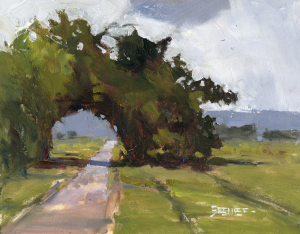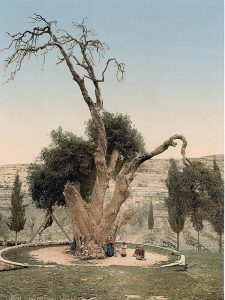“This is eternal life: that they may know You, the only true God, and the One You have sent–Jesus Christ.” John 17:3
My favorite portrayal of a Christian in the movies is Tevye, the protagonist Jewish character in Fiddler on the Roof. Tevye would look obliquely into the sky when he would hold his one-sided conversations with God. But he wasn’t talking piously as if toward some idol at the front of a sanctuary. Tevye actually talked with him as he would a friend. And while there was no thunder from the skies in return, the answers came.
That’s me.
Except I’m more face-to-face.
Not that I think I have an inside fast-track to the divine that no one else may have.
But just to go deeper in describing this invisible connection to God, people say we need to “trust and obey him?” Well, one thing I’ve learned is that obedience doesn’t describe this relationship at all. Mine isn’t even one of what I would call trust. Because much of the time, I’m that snarling dog in the corner of the clinic staring deep into the eyes of the vet.
And God hasn’t made it any easier. Forget the syringe the vet’s got in his hand to cure what ails, God has put up all kinds of obstacles to keep me from him. Let’s start with the inherited handicaps from his wrath in the Garden. Add to it the distractions of this world, the taunting of his personally-enthroned prince—and the obscurity with which he presents himself to keep people in ignorance. He doesn’t want to be my friend.
But God assures me, I want to be his friend.
And he is patient.
Now, the above might seem like some abrupt shifting, and an irreverent approach, but there are a couple of things I want to add:
I was watching, “The Crown,” a TV series about the rise of Queen Elizabeth. Upon the death of her Father, King George VI, Elizabeth took on a new role of “Sovereign.” With this came new respect in the performance of her duties. From everyone. To begin with, people must bow and curtsy in her presence. Even her mother. Even her husband, Prince Philip, must follow behind and not walk alongside. He could only be her husband in private. And she would not take his name.
In an earlier post, I said the only thing I believe is that God is. Still true. Consequently, but, this passage comes to mind:
“You believe that there is one God. Good! Even the demons believe that—and shudder.” James 2:19
This quote isn’t about belief. It’s about shuddering.
So, do I shudder?
We call it reverence. Reverence presumes. It is prejudiced. And I know nothing.
And then there’s this quote:
“Blessed are the pure in heart, for they will see God.” – Matt. 5:8
Purity in heart isn’t about goodness or cleanliness. It’s about lack of contamination or pretense. What you see is what you get.
You don’t treat a friend like a “Sovereign.”
But, you might say, “Familiarity breeds contempt” and the like. “We can’t have that! We might argue with him, judge him. Accuse him. Strike him over and over—and worse, if we could.”
“…he was wounded for our transgressions, he was bruised for our iniquities; The chastisement for our peace was upon him, And by his stripes we are healed.” Isaiah 53:5
We might wrestle with him with all of our passion, holding nothing back.
And in the process, we might also see him for who he is.



